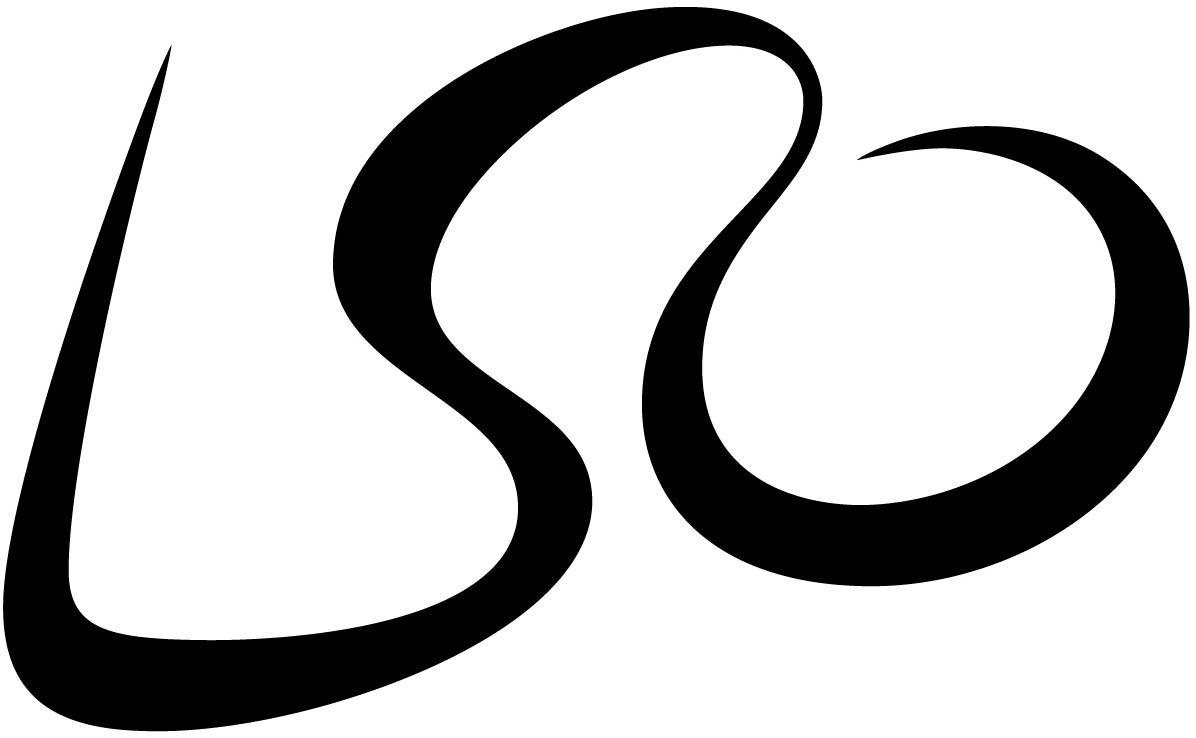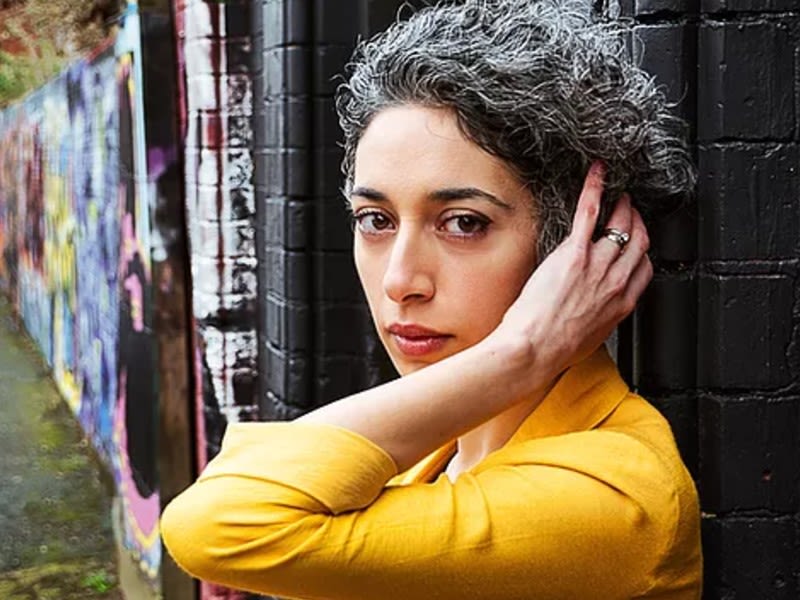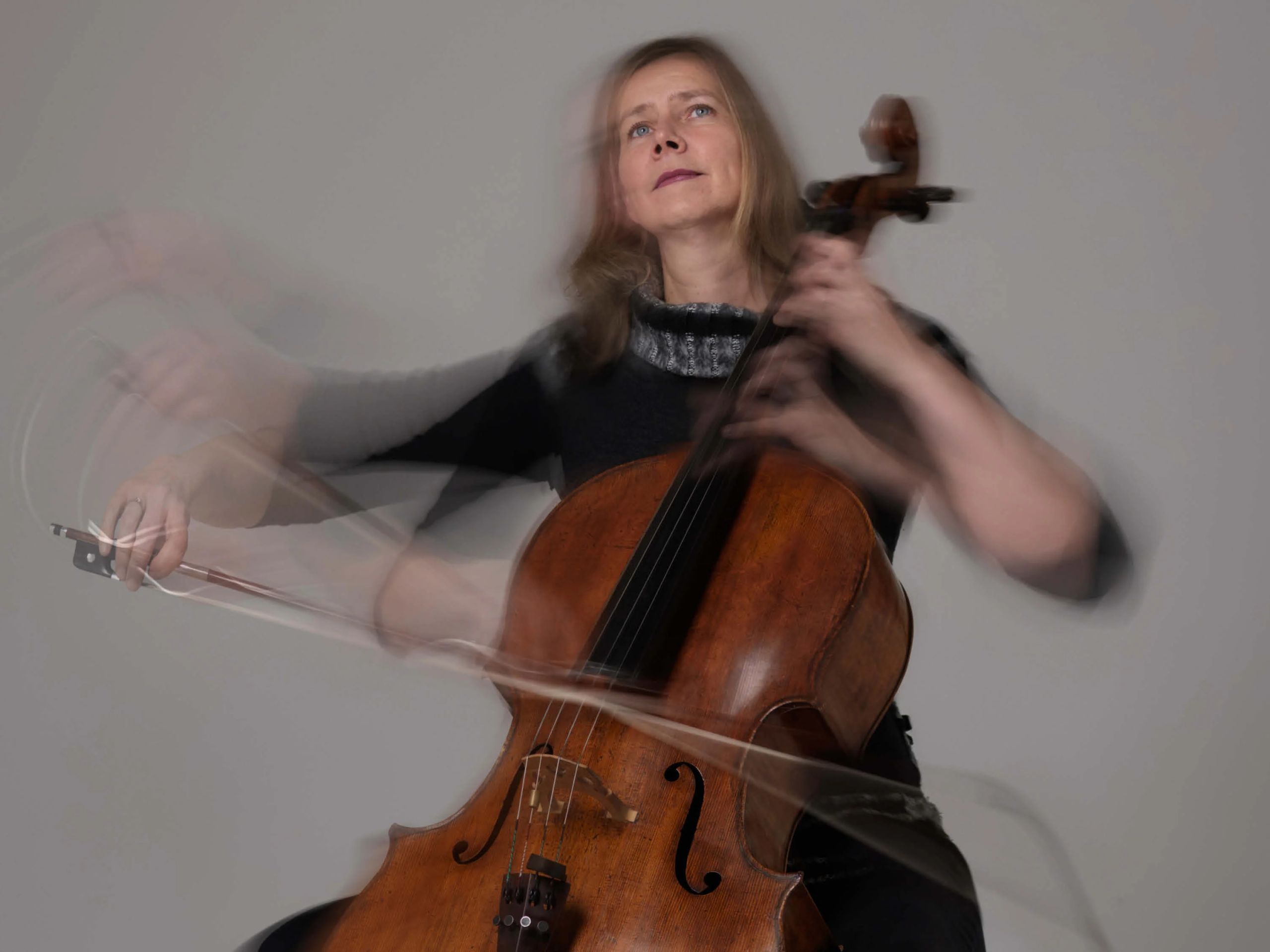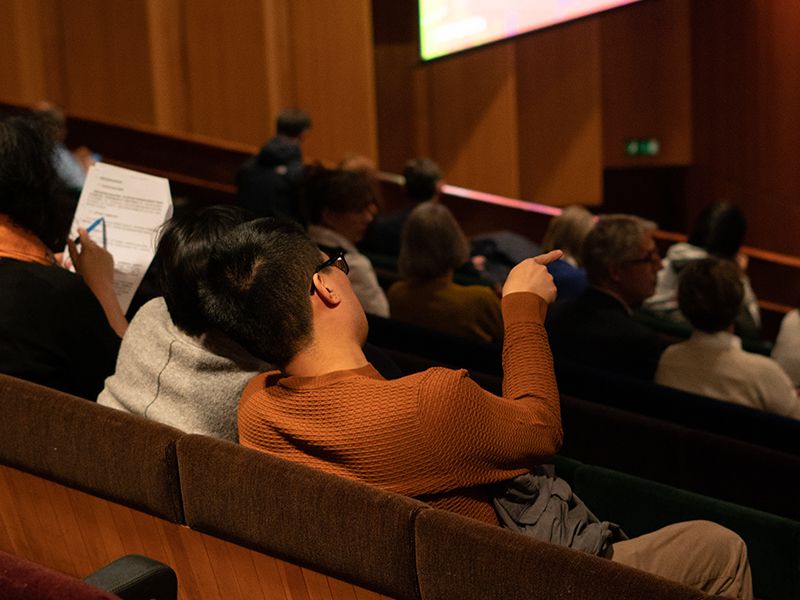LSO Summer Shorts
Naoko Keatley & Zeynep Özsuca
20 August 2021

You can use your phone to read about the music and performers during the concert. Use the menu icon (≡) in the top right of the screen to navigate.

Free WiFi
There is free WiFi available in the Jerwood Hall. Connect to the 'hawksmoor' network.
Please Note
Phones should be switched to silent mode. We ask that you use your phone only for reading the notes during the music. Photography and audio/video recording are not permitted during the performance.
Today's Programme
Friday 20 August 2021 11am & 1pm
Tonia Ko Plush Earth in Four Pieces
Ludwig van Beethoven Violin Sonata No 10
Naoko Keatley violin
Zeynep Özsuca piano
This series of Summer Shorts concerts is made possible by the kind support of the Huo Family Foundation.
Today's 1pm concert will be live streamed at youtube.com/lso.
Tonia Ko
Plush Earth in Four Pieces
✒️ 2014 | ⏰ 9 minutes

1 Part
2 Jewel
3 Part
4 Mud
Tonia Ko wrote Plush Earth in Four Pieces as an aural response to the opening of Vladimir Nabokov’s short story The Vane Sisters, in which the narrator observes ‘a family of brilliant icicles’ casting sharp shadows on the white-boarded walls of a ‘frame house’ as they slowly melt. Although all four movements share musical gestures, each has a distinct style. Striking features include the stabbing chords and dramatic pauses of the first Part, the increasingly volatile piano-violin dialogue in Jewel, the eerie high violin glissandi (sliding between notes) in the second Part, and the long rising scales and hushed ending of Mud, which Ko has described as evoking ‘a sound world that is fluid and almost languid’.
Note by Kate Hopkins
Tonia Ko
b 1988
© Matt Dine
© Matt Dine
Recipient of a 2018 Guggenheim Fellowship, American composer Tonia Ko’s music has been praised by The New York Times for its 'captivating' details and 'vivid orchestral palette'. Her music is at once whimsical, questioning and lyrical, no matter how traditional or experimental the medium. Her fascination with texture and physical movement play into a larger theme of the relationship between visual art and music.
Ko's multimedia work has been supported by a residency at the Studios at the Massachusetts Museum of Contemporary Art, and she has collaborated with the Perry Chiu Experimental Theatre in Hong Kong, the Periapsis Music & Dance in Brooklyn and noted choreographer Antonia Franceschi.
As the 2015–17 Young Concert Artists (YCA) Composer-in-Residence, Ko received commissions to write works for the debuts of pianist Daniel Lebhardt and oboist Olivier Stankiewicz, which premiered in the YCA Series in New York at Merkin Concert Hall and in Washington DC at the Kennedy Center, to critical acclaim. Her work Moves and Remains was premiered in the 2018 YCA Series by violinist Benjamin Baker and pianist Daniel Lebhardt.
Tonia Ko was born in Hong Kong and raised in Honolulu. She earned a BM with Highest Distinction from the Eastman School of Music and an MM from Indiana University Jacobs School of Music, where she served as Associate Instructor of Music Theory and was awarded the Georgina Joshi Commission Prize. She holds a DMA from Cornell University, studying with Steven Stucky and Kevin Ernste. She served as Postdoctoral Researcher at the University of Chicago’s Center for Contemporary Composition, was appointed Honorary Research Fellow at City University of London for the 2019/20 academic year, and is Lecturer in Composition at Royal Holloway, University of London.
Ludwig van Beethoven
Violin Sonata No 10 in G major Op 96
✒️ 1812 | ⏰ 27 minutes

1 Allegro moderato
2 Adagio espressivo
3 Scherzo: Allegro – Trio
4 Poco allegretto
The year 1812 was a fruitful one for Ludwig van Beethoven. Along with his Seventh and Eighth Symphonies, he also composed this, his tenth and final Violin Sonata. It is notably different to his ninth, the ‘Kreutzer’, written nine years previously – while that was all fire and passion, this later Sonata is serenely good-humoured. Beethoven dedicated it to his pupil and patron Archduke Rudolph of Austria, who played the piano in the premiere performance on 29 December 1812, accompanying the violinist Pierre Rode. The composer carefully tailored the piece to the Frenchman’s playing style, albeit reluctantly at times – he wrote to the Archduke that while ‘we Viennese’ appreciated finales with ‘fairly noisy passages’, Rode did not, ‘and so I have been rather hampered’.
The sunny Allegro moderato is notable for its distinctive opening theme – whose trill is reminiscent of birdsong – and its hushed dynamics, the violin rarely rising louder above piano. There is considerable dialogue between the two instruments.
The tranquil Adagio espressivo opens with a chorale-like solo for the piano; as the movement progresses, violin and piano take the melody in turn. The reflective ending to this movement leads straight into the lively, strongly-accented Scherzo and its contrastingly lyrical trio. The finale is a set of variations on a buoyant folk-like theme, which are alternatively pensive and flamboyant in character. Beethoven plays characteristic musical jokes on listeners with a ‘false reprise’ of the main theme before Variation Six, and a sudden slower passage towards the end prior to the work’s exhilarating conclusion.
Note by Kate Hopkins
Ludwig van Beethoven
1770 (Germany) to 1827 (Austria)

Ludwig van Beethoven showed early musical promise, yet reacted against his father's attempts to train him as a child prodigy. The boy pianist attracted the support of the Prince-Archbishop, who supported his studies with leading musicians at the Bonn court. By the early 1780s, Beethoven had completed his first compositions, all of which were for keyboard. With the decline of his alcoholic father, Ludwig became the family breadwinner as a musician at court. Encouraged by his employer, the Prince-Archbishop Maximilian Franz, Beethoven travelled to Vienna to study with Joseph Haydn. The younger composer fell out with his renowned mentor when the latter discovered he was secretly taking lessons from several other teachers. Although Maximilian Franz withdrew payments for Beethoven's Viennese education, the talented musician had already attracted support from some of the city's wealthiest arts patrons.
Beethoven's public performances in 1795 were well received, and he shrewdly negotiated a contract with Artaria & Co, the largest music publisher in Vienna. He was soon able to devote his time to composition or the performance of his own works. In 1800 Beethoven began to complain bitterly of deafness, but despite living with the pain of tinnitus, chronic stomach ailments, liver problems and an embittered legal case for the guardianship of his nephew, Beethoven created a series of remarkable new works, including the Missa solemnis and his late symphonies and piano sonatas. It is thought that around 10,000 people followed his funeral procession on 29 March 1827. Certainly, his posthumous reputation developed to influence successive generations of composers and other artists, inspired by the heroic aspects of Beethoven's character and the profound humanity of his music.
Composer profile by Andrew Stewart
Artist Biographies

Naoko Keatley
LSO Second Violin
Naoko Keatley made her debut performance as soloist with the Sydney Youth Orchestra at the age of eight, and has since performed in venues around the world, including Wigmore Hall, Sydney Opera House and Queen Elizabeth Hall. She joined the LSO in 2014, having been in the Royal Philharmonic Orchestra for five years before that, and also has a busy freelance career in London. Naoko lives with her husband Niall, also in the LSO, and their two-year-old daughter.

Zeynep Özsuca
piano
The Turkish pianist Zeynep Özsuca has performed worldwide as a soloist, chamber musician and accompanist. Born in Ankara, she began piano lessons at the age of four and continued her studies at Ankara Conservatory of Hacettepe University.
As a chamber musician, she has performed on prestigious stages including the Berlin Philharmonie, Palau de la Musica Valencia, Schleswig-Holstein Music Festival, Queen Elizabeth Hall as well as live radio broadcasts on Deutschlandfunk, Deutschlandradio, RBB Kulturradio (Germany), RNE (Spain), BBC Radio 3 and 4 (UK), alongside co-hosting the BBC Young Musician Podcast. She also regularly appears in concert with her duo partners saxophonist Jess Gillam and clarinettist Sacha Rattle, as well as her wind and piano sextet Berlin Counterpoint.
Thank You for Watching
The London Symphony Orchestra was established in 1904. Through inspiring music, educational programmes and technological innovations, the LSO’s reach extends far beyond the concert hall.
Still to Come

LSO Summer Shorts: Rebecca Gilliver, Juliana Koch & Michael McHale
Friday 27 August 11am & 1pm, LSO St Lukes
LSO Musicians Rebecca Gilliver and Juliana Koch, and pianist Michael McHale, close our 2021 series of Summer Shorts with music by Robert Schumann and Nadia Boulanger.
Autumn 2021 at the Barbican
Starts Sunday 12 September
Experience the power of the full London Symphony Orchestra on stage at the Barbican.
HALF SIX FIX
An early-evening burst of music, featuring just one great piece with introductions and insights from the conductor.
WILDCARD TICKETS
See the LSO for less. For £10 or £15, plus £3 online booking fee, you are guaranteed entry to the concert but you won’t know your exact seat until the evening of the performance.
Support the LSO and LSO St Luke's
The importance of music and the arts has never been more apparent than in recent months, as we’ve been inspired, comforted and entertained throughout this unprecedented period.
As we emerge from the most challenging period of a generation, please consider supporting our Always Playing Appeal to sustain the Orchestra and our venue LSO St Luke's, assist our recovery from the pandemic and allow us to continue sharing music with the broadest range of people possible.
Every donation will help to support our future.
You can also donate now via text.
Text LSOAPPEAL 5, LSOAPPEAL 10 or LSOAPPEAL 20 to 70085 to donate £5, £10 or £20.
Texts cost £5, £10 or £20 plus one standard rate message and you’ll be opting in to hear more about our work and fundraising via telephone and SMS. If you’d like to give but do not wish to receive marketing communications, text LSOAPPEALNOINFO 5, 10 or 20 to 70085. UK numbers only.




